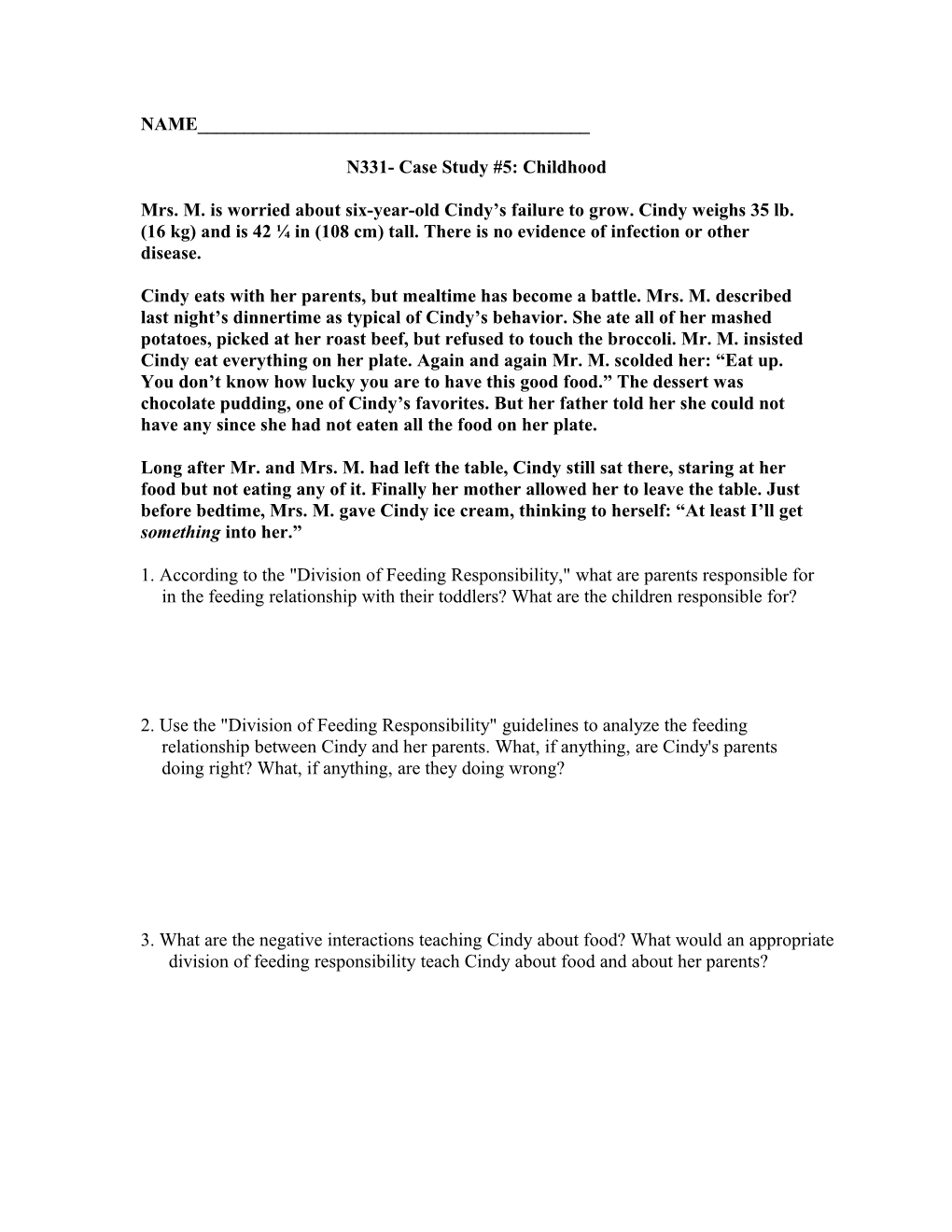NAME______
N331- Case Study #5: Childhood
Mrs. M. is worried about six-year-old Cindy’s failure to grow. Cindy weighs 35 lb. (16 kg) and is 42 ¼ in (108 cm) tall. There is no evidence of infection or other disease.
Cindy eats with her parents, but mealtime has become a battle. Mrs. M. described last night’s dinnertime as typical of Cindy’s behavior. She ate all of her mashed potatoes, picked at her roast beef, but refused to touch the broccoli. Mr. M. insisted Cindy eat everything on her plate. Again and again Mr. M. scolded her: “Eat up. You don’t know how lucky you are to have this good food.” The dessert was chocolate pudding, one of Cindy’s favorites. But her father told her she could not have any since she had not eaten all the food on her plate.
Long after Mr. and Mrs. M. had left the table, Cindy still sat there, staring at her food but not eating any of it. Finally her mother allowed her to leave the table. Just before bedtime, Mrs. M. gave Cindy ice cream, thinking to herself: “At least I’ll get something into her.”
1. According to the "Division of Feeding Responsibility," what are parents responsible for in the feeding relationship with their toddlers? What are the children responsible for?
2. Use the "Division of Feeding Responsibility" guidelines to analyze the feeding relationship between Cindy and her parents. What, if anything, are Cindy's parents doing right? What, if anything, are they doing wrong?
3. What are the negative interactions teaching Cindy about food? What would an appropriate division of feeding responsibility teach Cindy about food and about her parents?
4. Is there anything else about the family's interactions concerning food that might be teaching Cindy inappropriate lessons?
Here's another one:
Melissa is an obese 5-year-old whose weight climbed from the fiftieth to the ninety-fifth percentile during a period of family stress. The pediatrician instructed Melissa's parents to cut back on her food intake. She throws a tantrum when they refuse to give her seconds and she is constantly hanging around, wanting food.
1. Considering only Melissa's weight, is it likely that she will become an obese adult? Justify your answer.
2. Use the "Division of Feeding Responsibility" guidelines again. What should Melissa's parents do? (Should they continue to follow the doctor's advice? Why or why not?)
3. What attitudes towards food do you expect Melissa to develop if the family continues this way? Do you think their approach is likely to help her lose weight?
4. What do you think is likely to happen to Melissa's weight if the family follows the "Division of Feeding Responsibility" guidelines?
